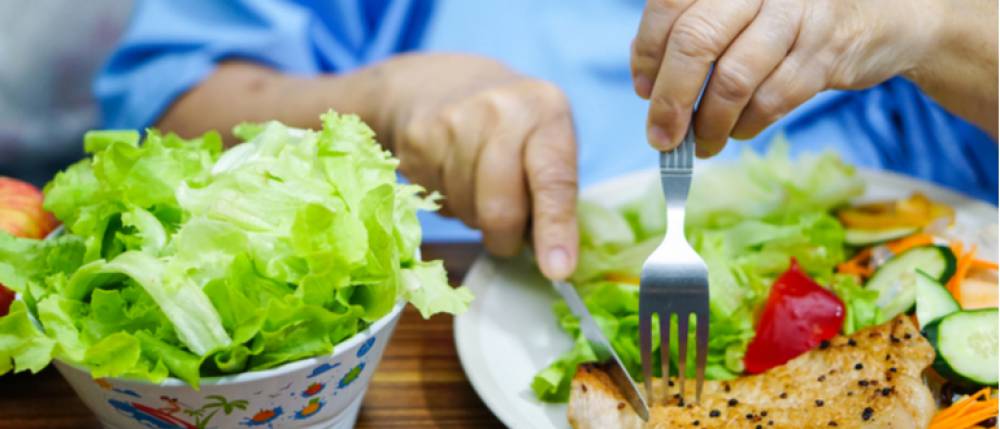Subscribe to get weekly insights
Always stay up to date with our newest articles sent direct to your inbox
Published on 22 Sep, 2020
Updated on 21 Feb, 2025
4420 Views
4 min Read

Written by Anjali Sharma
Reviewed by Munmi Sharma
0Like
Be the First to Like
Having elderly family members means an entirely different dietary requirement every day. Ensuring old-age food matches their health needs and condition is vital. One must also remember that body mass and metabolism slow down as a person ages. Besides, ageing changes one’s digestive system, appetite, and food preferences. Also, older adults may need soft foods that are easy to chew and digest. A balanced old-age diet chart in India is a mix of seasonal fruits and veggies to combat year-long infections.
At the same time, giving senior citizens a wholesome diet with foods rich in nutrients is extremely necessary so that their immunity and overall health remain strong. With age, energy needs may reduce, but nutrition requirements increase. In this article, we have elaborated on the old age diet chart that will help your ageing parents in combating old age-related weaknesses and conditions.
As people grow older, they tend to become physically less active; however, you need to consume fewer calories to maintain weight.
A healthy diet for the elderly includes fruits, vegetables, whole grains, lean protein, and dairy. It should also include plenty of fluids.
Let us discuss in detail about the food items that can be included in the dietary plan of the elderly:
Breakfast cereals such as oats, cornflakes, and porridge are considered healthy food for senior citizens, improving their Vitamin B12 levels. Often found in animal products, Vitamin B12 is essential for improving nerve functioning and the production of red blood cells in elderly individuals.
Soups, whether salty or sour, top the diet chart for old age. Prepare soups with vegetables such as carrots, tomatoes, spinach, green peas, etc., which are ideal dinner options. Include green leafy vegetables and potassium-rich foods in their diet. This will help control their blood pressure and improve muscles' flexibility. However, one should strike a balance regarding the amount of potassium intake.
Fruits containing Vitamin C and fibre, including oranges, apples, avocados, pears, raspberries, and bananas, are considered the best fruits for old age. Fruits such as oranges contain Vitamin C with antioxidant properties, thus helping keep heart diseases at bay. Vitamin C boosts immunity, helps heal wounds, and improves skin elasticity. Senior citizens who often complain of constipation should take plenty of fruits to help in bowel movement and aid in digestion since fruits contain ample fibre.
Calcium-rich foods such as milk and green vegetables are vital for older adults, especially women. Dairy products provide calcium to help the body deal with conditions such as osteoporosis. Also, it is better to combine them with foods rich in Vitamin D, which aids in calcium absorption in the body. One can go for yoghurt, which also contains proteins and probiotics to aid digestion. Also, to avoid vitamin D deficiency, ensure your ageing parents get some sunshine outdoors.
Herbs and spices work wonders for keeping the body healthy and constitute the best food for weakness in old age. Some of them help in fighting chronic diseases such as Alzheimer’s disease and reducing the risks of cancer. For instance, ginger helps in the absorption of nutrients. Garlic is another spice that not only adds flavour to food; it also lowers blood pressure, blood sugar level and cholesterol. Other options are aloe vera, turmeric, and cinnamon which have many healing and immunity-boosting properties, thus helping the body in fighting off infections.
Note: The above information is for reference purposes only. Please consult with your doctor.
In an elderly diet plan, certain foods should be avoided or limited to promote overall health and reduce the risk of chronic conditions. By focusing on whole, nutrient-dense foods while limiting a few food items, an elderly diet can support better health and well-being.
>>Read More: 10 Key Features to Look for in Senior Citizen Health Insurance Plans
To sum up, we can say that a senior citizen diet plan should be a balanced one comprising carbohydrates, proteins, fibre, vitamins and minerals. Additionally, they should keep a watch on their water intake. It is necessary to stay hydrated to prevent dehydration and other health problems. In case seniors are dealing with a kidney or liver ailment; then it is advisable to consult a doctor.
Additionally, if you haven’t yet opted for health coverage for your senior citizen parents, now is the time? Invest in a Senior Citizen Health Insurance Plan to give them financial security in case of a medical emergency. Visit Care Health Insurance website and browse over our health insurance plans to find a suitable option for your parents.
Disclaimer: Plan features, benefits, coverage, and underwriting of claims are subject to policy terms and conditions. Please refer to the brochure, sales prospectus, and policy documents carefully
Be the First to Like
शुगर कंट्रोल कैसे करे? जानें, डायबिटीज में क्या खाना चाहिए Care Health Insurance in Health & Wellness
Thyroid : मामूली नहीं हैं महिलाओं में थायराइड होना, जानें इसके लक्षण और घरेलू उपचार Care Health Insurance in Diseases
हाई ब्लड प्रेशर को तुरंत कंट्रोल कैसे करें? देखें इसके उपाय Care Health Insurance in Diseases
प्लेटलेट्स की कमी के लक्षण, कारण और इलाज क्या है Care Health Insurance in Diseases
Senior Citizen Health Insurance: 10 Common Myths Debunked Care Health Insurance in Senior Citizens
How can Health Insurance Support Your Senior Citizen Parents? Care Health Insurance in Senior Citizens
How Zone based health insurance works in Senior Citizen Health Insurance Care Health Insurance in Senior Citizens
Parent Suffering From Health Issues? You Can Still Buy Health Insurance Care Health Insurance in Senior Citizens